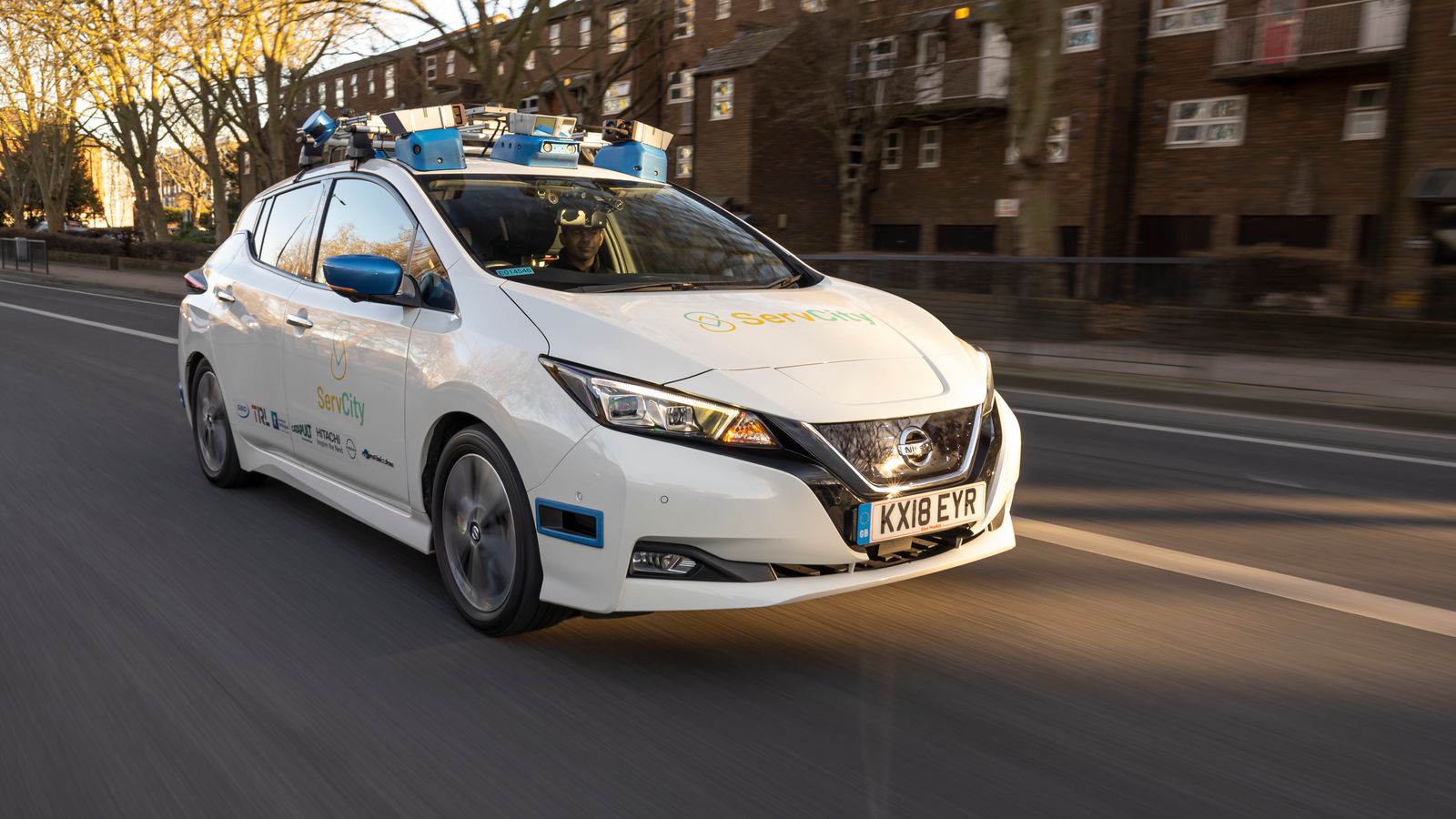Traffic lights could be made obsolete within 20 years, an engineer has claimed, after a landmark trial of driverless vehicles in the UK.
The two-year trial saw two self-driving cars built by Nissan complete hundreds of laps round a 2.7-mile long route in Woolwich, southeast London.
Believed to be the UK’s first trial of driverless technology involving the use of roadside infrastructure as well as the vehicles’ own systems, it formed part of the ServCity project.
Around 270 cameras placed on the route allowed the Japanese-made Nissan Leaf cars to predict potential warnings, such as buses stopped in lanes, enabling them to swiftly change lanes.
Smart Mobility Living Lab (SMLL) engineer Thomas Tompkin claimed the trial showed a “seismic shift in the way our roads are laid out” is possible.
He said: “If we think about maybe 20 or 30 years time, can you start to then think about the infrastructure outside?
“Can you start to remove some of that infrastructure, such as traffic signals?
“Obviously, there’s a lot of work to be done before that ever takes place.
“But that’s where you can start to see a seismic shift in the way our roads are laid out.”
The prospect of self-driving vehicles has, in the past, been backed by the UK government, which expressed its commitment to introducing legislation that will enable their use.
It has also invested £7m into the ServCity project in order to be at the “forefront of innovation”, according to transport minister Jesse Norman.
Currently, high-specification roadside systems cost approximately £1m per kilometre, but Mr Tompkin believes a wider rollout of more basic technology could be done for a fraction of the price.
Read more:
Are driverless cars coming to British roads?
Self-driving cars: Motorists will not be liable for crashes
Increasing the risk of an accident
Meanwhile, in the US, Tesla recently announced it is recalling 362,000 cars over fears their full self-driving (FSD) software may cause a crash.
Watchdog NHTSA, which has been conducting an investigation into the company’s autopilot systems, said Tesla’s software allows a vehicle to “exceed speed limits or travel through intersections in an unlawful or unpredictable manner”, increasing the risk of an accident.
“Possible situations where the problem could occur include travelling or turning through certain intersections during a yellow traffic light and making a lane change out of certain turn-only lanes to continue travelling straight,” the regulator said in a statement.
Tesla said it was not aware of any injuries or deaths that may be related to the recall issue.






